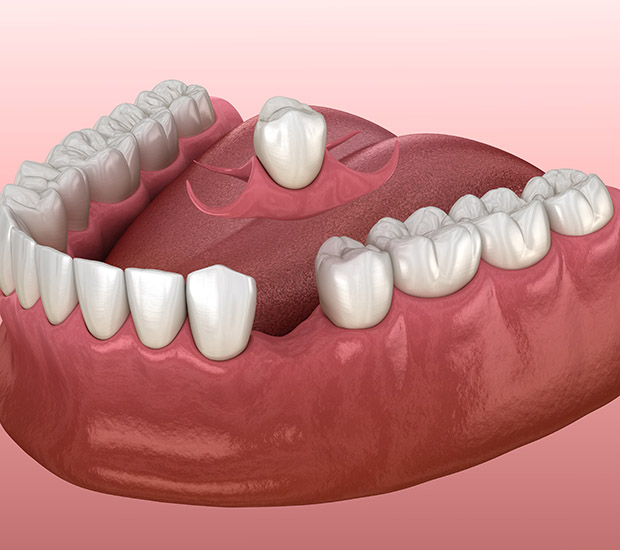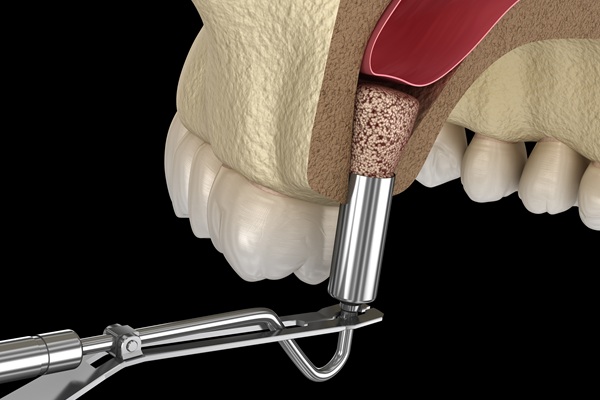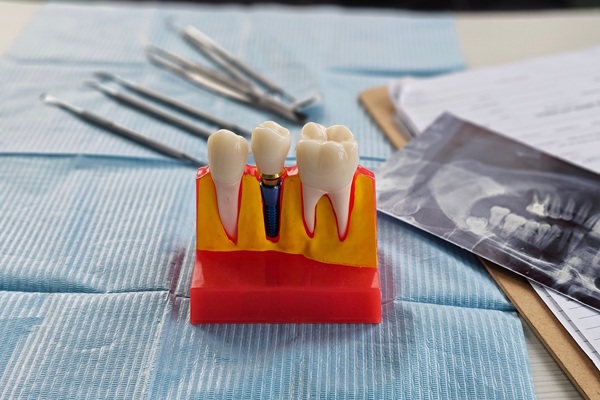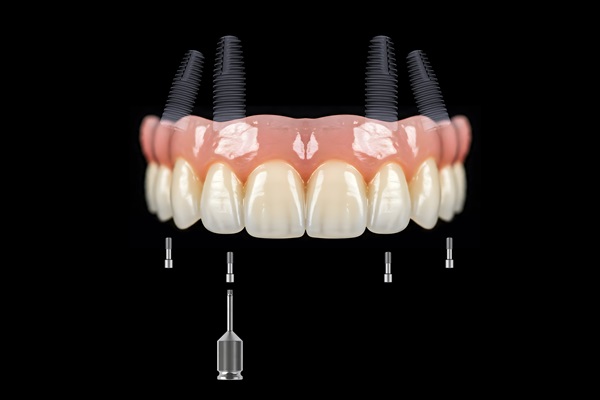Tooth ReplacementBoca Raton, FL
Tooth replacements enhance the physical appearance of your smile while also improving oral function. Tooth replacements typically take the place of missing, decayed, or severely damaged teeth - teeth that no longer function properly or as well as they could. Compromised teeth can cause a plethora of oral and systemic health problems if left untreated. Tooth replacements, such as crowns, bridges, and dentures, now come in tooth-colored material, allowing us to color-match your surrounding natural teeth.
At Thomas A. Copulos DDS, PA we offer tooth replacement treatments for patients with missing or severely decayed or damaged teeth. Our team can help identify the root cause, treat it, and prevent further oral health problems from arising. To learn more about a procedure or schedule an appointment, call 561-763-1066 today.
What is Tooth Replacement?
Tooth replacement refers to a dental restoration procedure that replaces a dysfunctional tooth with a new, functional one. Dental restorations provide a secure, durable, and effective solution for an empty gap, compromised tooth, or a dental implant. They restore oral function while preventing further decay and infection in the affected area(s).
Tooth replacements are custom-made to fit each individual’s unique mouth and oral structure. They are color-matched to resemble the patient’s remaining teeth and include natural-looking grooves and ridges. Tooth replacement can treat a single tooth, multiple teeth, or the entire mouth.
What is Complete Teeth Replacement?
Complete teeth replacement is when a dentist removes all the natural teeth from a patient's mouth and replaces them with dental prosthetics or implants. Complete teeth replacement is needed when more teeth are damaged than are still functional. This may be caused by extensive periodontal disease, injury, or decay. When one of these issues has caused many teeth to fall out or become infected, the dentist will have to perform a full mouth extraction to replace the entire set of teeth.
Typically, patients who require a full mouth extraction have two options for replacement teeth: complete dentures or dental implants. To determine which choice is right for a particular patient, the dentist will assess the patient's lifestyle, dental hygiene regimen, and bone structure. Complete dentures consist of metal and acrylic resin attached to a hard plastic base resting securely on the patient's gums. Dental implants are small titanium posts that serve as artificial tooth roots. Installing these in the mouth allows dentists to implant permanent artificial teeth.
Types of Tooth Replacements
The type of tooth replacement a patient needs will depend on their case, current oral health, and the amount of teeth needing replacement. Crowns and bridges are typically used after a root canal procedure or when one or more teeth have been knocked out or compromised due to severe decay or damage. Dentures are designed to replace worn out, loose, or missing teeth; they may be removable or fixed. Dental implants are actually artificial tooth roots that secure a dental restoration in place.
Common types of tooth replacements include:
- Crowns
- Bridges
- Partial Dentures
- Complete Dentures
- Dental Implants with a Restoration
Benefits of Tooth Replacements
Both partial and complete teeth replacement improve oral motor function in patients with teeth problems. Patients with numerous missing teeth may have trouble performing oral motor functions, such as chewing and talking. All teeth replacement options can help with this as well as remedy oral problems such as excessive decay and periodontal disease.
Going without treatment for missing, decayed, damaged, traumatic, or fractured teeth can cause a plethora of oral and systemic health problems. Over time, the gums and underlying bone cannot withstand the wear and tear of a compromised tooth, and it will eventually fall out. Replacing compromised teeth early on can restore oral function, enhance physical appearance, and prevent further complications.
How the Tooth Replacement Process Works
The process of tooth replacement depends largely on the type of replacement and restoration being used. Nonetheless, the first step is creating an individualized treatment plan. The treatment plan will list the treatments and outline the desired outcomes; it may be adjusted as needed. The process for the various types of tooth replacement options are:
- Crowns and Bridges: The tooth replacements take the place of a single tooth or multiple teeth. Once the natural tooth is removed, the crown or bridge is affixed to an abutment using a special cementing material and curing light.
- Partial Dentures:
- Complete Dentures: The dentist will then perform a full mouth extraction to remove all of the remaining natural teeth. If the patient has opted for dentures, a cast will be made of the gums, and then the small appliances will be specially made to fit securely inside the mouth.
- Dental Implants: Implants can be installed immediately after extraction, but the artificial teeth cannot be placed until the implants fuse to the jawbone. The American College of Prosthodontists states that an artificial tooth can be attached to the implant after this fusion has taken place.
Frequently Asked Questions About Tooth Replacement
Does complete teeth replacement hurt?
The extraction process is often the most uncomfortable part of complete teeth replacement. Dentists use soft wax to take molds for dentures, and new appliances may cause soreness for a few days, but the general process is not painful. A local anesthetic may be necessary when installing dental implants, so patients typically experience minimal pain, only swelling and mild soreness after the procedure.
What is the recovery process for all teeth replacement options?
Dentures can be installed during the same appointment as the extraction. Patients may need to return for minor adjustments over the first few weeks, but the recovery process is typically quick and painless. Because dental implants require several appointments over time to complete, patients may experience minor pain between visits.
Who should get a complete teeth replacement?
Anyone whose teeth have experienced significant disease, injury, or decay may be a candidate for teeth replacement. Patients should have healthy oral tissue to qualify for the procedure. They also must be tough enough to undergo minor dental surgery in the case of implants.
Do all teeth replacement options look natural?
Both dentures and implants are designed to look natural. Regardless of which option a patient chooses, the dentist can match the shade to that of the original natural teeth, resulting in a more natural look. Because they are permanently fixed in place, implants typically look more realistic than dentures, but both options can be shaped and colored to look natural.
How should teeth replacements be cared for?
Proper dental hygiene is essential for caring for replacement teeth. Like with natural teeth, dentures and implants need to be cleaned thoroughly on a regular basis. Replacement teeth should be cleaned with a soft-bristled toothbrush, mild soap, and water.
What are the benefits of choosing dental implants for complete teeth replacement?
The primary benefit for choosing implants over dentures is enhanced comfort. Ill-fitting dentures can potentially come loose and rub against a patient's gums, causing sores and irritation and impeding routine functions. Because implants are permanent, patients rarely feel them. They also look more natural than dentures and can last a lifetime with proper care and maintenance.
Schedule a Visit Today
Tooth replacement consultations and treatments are available at our office. The Thomas A. Copulos DDS, PA team looks forward to treating you and helping create the smile of your dreams. Call our office at (561) 763-1066 to learn more or schedule an appointment.
Thomas A. Copulos DDS, PA is located at
1000 NW 9th Ct Ste 106
Boca Raton,
FL
33486





